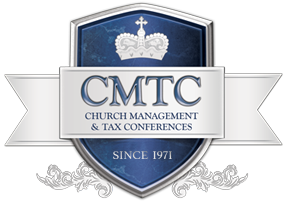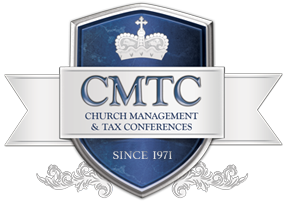Scripture declares that the love of God does not dwell in anyone of financial means who can see their brother or sister in the Lord in need, but not open their heart of compassion to them (1 John 3:17). Jesus declared it this way, “That which you do to the least of these you have done unto me” (Matt. 25:45).
Who among us would not want the love of God dwelling within us? Who among us would want to do harm to Jesus or not care for any need He may have?
I have a Pastor friend who built his church upon a benevolence ministry. People in the city would call him anytime they needed a few dollars, food, or a litany of other things. He would fix their car; bail their children or spouse out of jail, etc. In all my years of knowing him, I never knew him to turn down anyone. It is sad, that Pastor S. and his congregation learned the hard way the importance of doing things in compliance with federal regulations.
Regardless of what Pastors and ministries may believe, how their membership may define benevolence is irrelevant if that definition is contrary to IRS regulations.
Benevolence – What is it?
Benevolence is defined by the IRS as that which is given from “detached and disinterested generosity, out of charity or like impulses.” This definition was upheld by the Supreme Court.
Benevolence is not benevolence if it is given to anyone who enjoys substantial influence within the organization from which the gift is solicited. This rule also applies to the families of said influence. Any gift received by said individuals constitutes private inurement. Private inurement, or excess benefit transactions carry stiff penalties against tax-exempt organizations that engage in such.
Persons not qualifying for benevolence may receive financial benefit if it is “consideration for services rendered.” However, they must provide a service for the tax-exempt organization (i.e. the Church) and remuneration provided must be considered as income and reported via a W-2 or 1099-MISC.
There was a time when a Church could give money to “needy” individuals for almost any purpose. Unfortunately this is no longer an option. It was not that long ago that the IRS reduced benevolence qualified items to five. That number has now been reduced to three. Unless the Pastor, Church, or ministry knows the proper guidelines and the areas allowed by the IRS, they could find themselves in the same trouble as Pastor S. and his congregation.
Create a Benevolence Program with Proper Guidelines
1. Establish benevolence guidelines
Unless this policy specifically states the items qualified for benevolence, the organization and the responsible party, i.e. the Pastor, the Church and Pastor are setting themselves up for trouble from the IRS and from those who may be denied. Some people will threaten lawsuits if you do not help them.
The Supreme Court has determined that in the area of benevolence, the Church may discriminate against anyone who does not tithe or support the ministry.
2. Develop a benevolence application
This serves several purposes, but mainly it assists in the identification of those requesting the assistance and provides tracking information that will help the Church determine if it is helping an individual or merely supplementing the individual’s income.
Anyone that is constantly applying for benevolence does not need money, they need training; they don’t need a handout, they need a hand up.
Many of those who stand on the corner with a sign, “will work for food,” are professionals. A local TV station in a neighboring city caught a blue collar, highly paid professional, who would leave his place of employment each afternoon, change into old clothes, and stand on a corner and panhandle. When confronted by the local media, he was unapologetic, boasting of the $35,000.00 tax free money he received each year on that street corner.
Just because someone claims to have a need does not mean a need exists.
3. Determine which individuals will administer the benevolence
These persons should determine the best course of action for those qualifying for the assistance.
The Last Word
Our world is not what it was when Jesus walked this earth. Because of the multitude of con artists and scams that exist today, due diligence must be performed prior to releasing God’s money. After all, we are Ambassadors for the Kingdom of God and as such God demands that we be good stewards of that which He has placed in our care.
Legal compliance in our daily ministry operations is not an option – it is a necessity. If you are beginning a new ministry, resolve compliance issues before they begin by starting Church right!
No one knows Church Tax Law as well as Chitwood and Chitwood. We are the premier organization in America. If you would like to set up a proper benevolence fund for your Church, I encourage you to contact us at drshaw@cmtc.org for the necessary tools or visit the conference page of www.cmtc.org to register for a Clergy Tax and Law Conference near you.
Scripture teaches that there is a “rest” for the children of God. IF YOU WANT TO BE AT REST, CONNECT TO THE BEST – CHITWOOD AND CHITWOOD!

